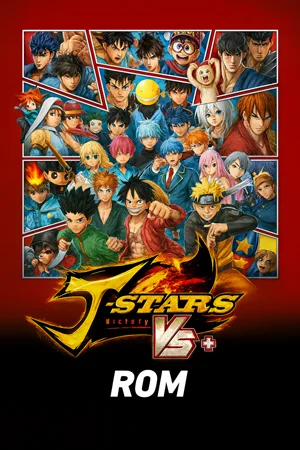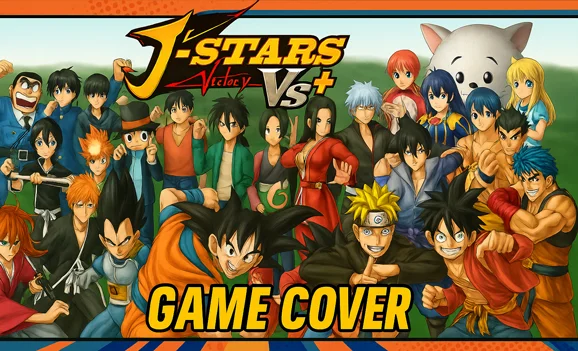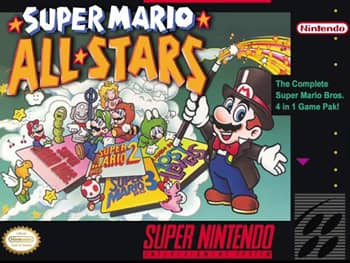J-STARS Victory VS+ Rom

| Console | PS Vita > ROMs |
|---|---|
| Publish | 20 Sep 2025 |
| Emulator | Vita3K: PS Vita Emulator |
| Genre | Fighting |
| Region | USA |
| Format | .pkg |
| Downloads | 3100 |
J-STARS Victory VS+ ROM runs cleanly on Vita3K for PS Vita. Fast loads. Big arenas. Tag-team chaos with a crossover roster that never gets old. Boot it up, scale the resolution, map your pad, and the hits start flying.
I like it best on RPCS3 at a bumped internal resolution—edges sharpen, effects pop, and the camera breathes. On Vita3K the charm is portability and that quick pick-up-and-play feeling.
Quick Setup You Can Actually Follow
- Install Vita3K (PS Vita path).
- Add game files (ISO/PKG or VPK/zip) to the emulator’s library.
- Controller mapping: lock-on on a shoulder, camera on the right stick, dash on a trigger.
- Graphics: start at native, then raise internal resolution to 150% → 200%; turn on anisotropic filtering.
- Pacing: enable shader caching; let the first few matches warm things up.
Anecdote: On a mid-tier laptop with iGPU, 150% scale felt like the sweet spot; pushing beyond that traded crispness for hitches during super effects. On a desktop GPU, 200% was smooth with room to spare.

Story: A Patchwork “Jump World” That Plays Like a Victory Lap
Third-person view: a ship cuts across an impossible ocean. The crew? From different mangas, talking like old rivals. That’s the vibe. VS+ stitches together hubs from Weekly Shonen Jump series, then lets small squads chase goals, banter, and throw down in themed episodes.
- Multiple routes. Each captain leads a mini-odyssey—short arcs, boss-style showdowns, and character-driven detours.
- Light exploration. Move between nodes, pick skirmishes, snag resources, unlock support characters.
- Fan service done right. Quips land, ultimates nod to panels you can picture, and cameos feel earned rather than random.
Sometimes you’ll sprint from a gag-scene straight into a grudge match; other times you’ll linger in a hub just to trigger a new dialogue snippet. It flows.
Gameplay: 3D Arena Brawler With Tag-Team Teeth
This is a 2v2 arena fighter with a support slot and a meter that fuels spectacular finishes. You control space, bait bursts, and build sequences that look wild but remain readable.
Core loop
- Engage → confirm → extend. A clean hit becomes a wall carry or a launch; assists plug gaps, reset routes, or force a scramble.
- Gauge games. Pressure and defense build meter; spend it on signature supers, team finishers, and Victory Burst power plays.
- Stage dynamics. Corners matter; destructible props open escape lines or create nasty bounce angles.
Team building
- Pair a rushdown lead (fast normals, chase potential) with a zoning partner (projectiles, space denial).
- Add a support that either starts pressure (fast call-in) or saves you mid-combo (defensive break).
- Example triad: Luffy (gap-close) + Kakashi (mid-range control) + support that pops enemies airborne—simple to learn, dangerous when you start timing assists off wall splats.
Modes that stick
- Adventure routes for character stories and unlocks.
- Victory Road / Missions with themed stipulations—HP handicaps, timers, or synergy challenges.
- Arcade / Free Battle for quick reps; training mode for lab time.
Tuning for Smooth Play (Real-World Targets)
- Resolution Scale:
iGPU/older GPUs → 120–150%
Mid-range GPUs → 150–200%
High-end GPUs → 200%+ (watch fill-rate during ultimates) - Frame Cap: match your display (60/120). It kills jitter.
- Shader Cache: let it build; early micro-stutter fades after a few bouts.
- Camera & Lock-On: right stick + shoulder lock yields steadier tracking for aerial follow-ups.
- Dead Zones: trim them. It tightens dashes and sidesteps.
Troubleshooting (Short, Sharp, Useful)
- Stutter after fresh install? Warm up the shader cache with a few CPU-heavy arenas, then revisit them later—smoother the second pass.
- Input lag? Disable overlays, cap FPS, and prefer wired pads.
- Weird camera snaps near walls? Reduce lock-on sensitivity and avoid chaining dash-cancels into tight corners.
